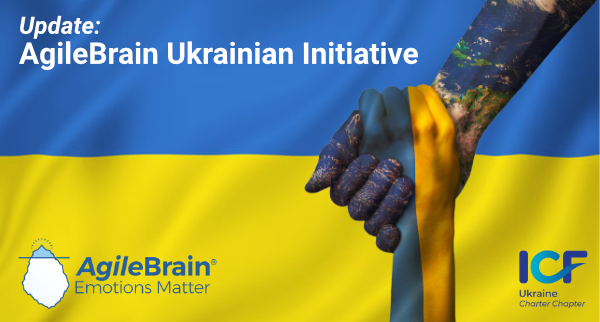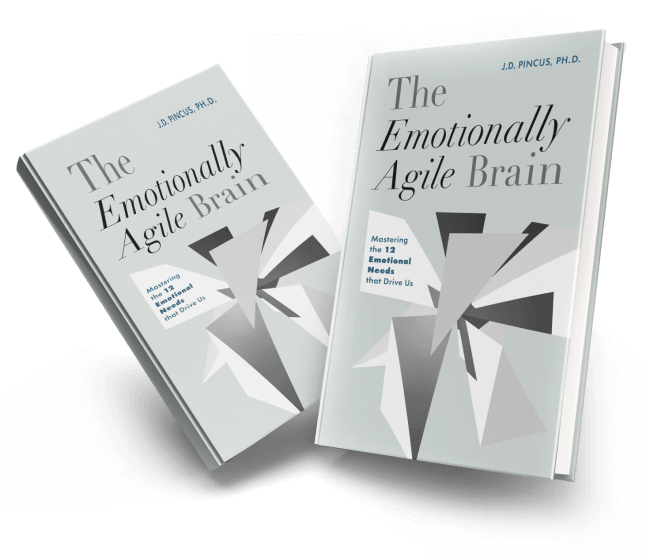The Start of a New Year: A Time for Reflection and Renewal
Each new year invites a fresh chapter—a chance to reset, recalibrate, and refocus. Many of us feel the urge to create resolutions or set goals, seeking a path of growth, fulfillment, and progress. Yet, while these intentions are admirable, they often overlook a crucial foundation: emotional wellbeing. Without first understanding our emotional drivers, the habits and beliefs we carry forward from the past year, and the unmet needs influencing our decisions, even the best-laid plans may falter.
At AgileBrain, we believe that true progress begins with emotional clarity. To explore how people are feeling at the dawn of this new year, we invited our global network of AgileBrain Practitioners and subscribers to take part in an AgileBrain Exercise. This quick, yet profound tool measures emotional activation and outlook across the 4 domains of human motivation, revealing insights about what participants are carrying over from the previous year and how they can move forward with intention.
The results? A striking portrait of the human condition at this transformative moment
Top 3 Themes Emerged in the Group Results
Themes of Immersion, Purpose, and Potential emerged most prominently with our participants. These findings highlight the importance of stability, growth, and meaning in navigating life’s uncertainties and opportunities.

Understanding Emotional Wellbeing Through AgileBrain
The AgileBrain framework examines emotions through four domains—self, material, social, and spiritual—and categorizes them into three levels—foundational, experiential, and aspirational. By capturing participants’ instinctive responses to emotionally driven prompts, the exercise uncovers the needs and desires shaping their thoughts, behaviors, and decisions.
Immersion:
The Power of Being Present
Immersion emerged as the most highly activated emotional need among participants, reflecting the human desire to fully engage in meaningful experiences. This result displayed a fascinating split between promotion (wanting more feelings of Immersion) and prevention (wanting less stagnation or distraction) needs, highlighting different emotional drivers:
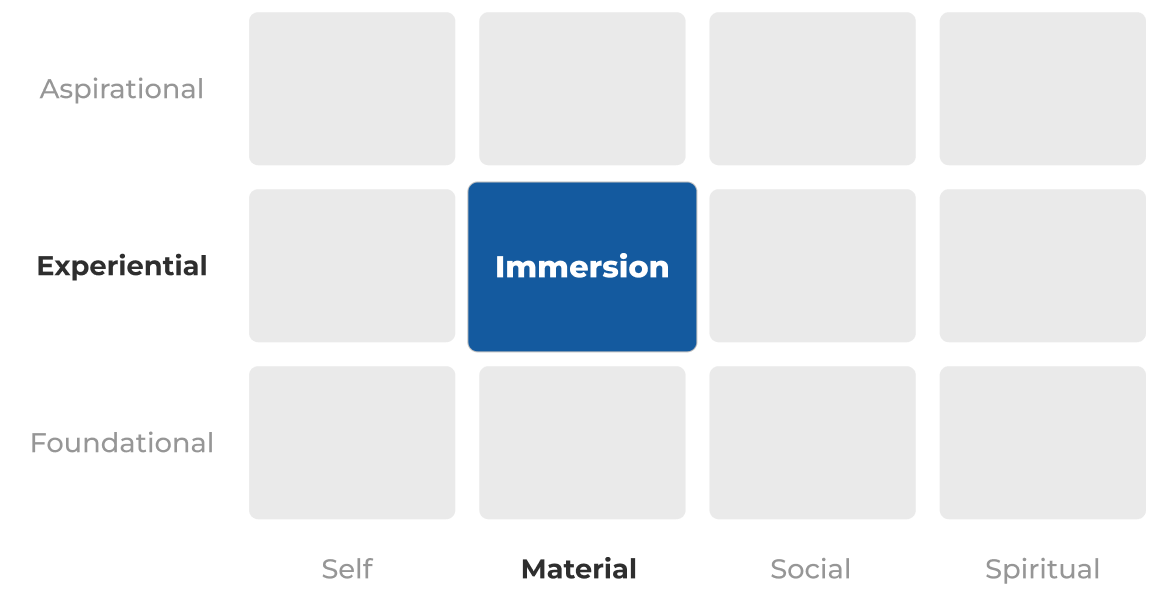

Promotion & Prevention needs for Immersion were evenly split with this group
Promotion-Oriented Immersion
Participants with promotion needs for Immersion were motivated by a desire for deeper connection, creativity, and engagement. They expressed longing for activities that spark joy, curiosity, and flow, where time seems to stand still. For example, they mentioned pursuing hobbies, engaging in meaningful work, or spending quality time with loved ones.
Prevention-Oriented Immersion
Conversely, participants with prevention needs viewed Immersion as an escape from stress caused by distraction, boredom, or stagnation. For them, being present meant stepping away from distractions or avoiding situations that drain their energy. These individuals often sought solace in mindfulness practices or intentional downtime to regain a sense of balance.
Balancing Immersion
Both promotion and prevention needs underscore the value of presence in fostering emotional wellbeing. Immersion allows individuals to feel more grounded and connected, whether they are actively engaging with the world or intentionally pulling back to recharge.
Purpose:
The Search for Meaning
Purpose ranked the second highest among emotional needs, with a greater emphasis on promotion but also revealing some prevention needs:
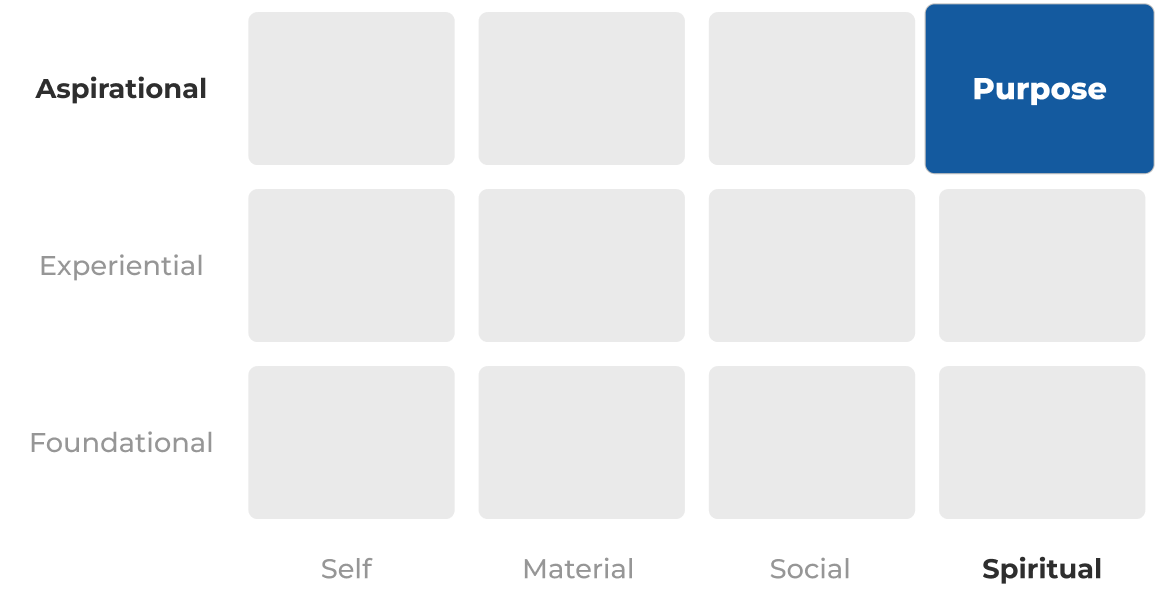

Promotion & Prevention needs for Purpose leaned toward Promotion
Promotion-Oriented Purpose
Participants driven by promotion needs sought alignment between their actions and values. They expressed a desire to contribute to a greater good, pursue meaningful goals, and create lasting impact in their personal and professional lives.
Prevention-Oriented Purpose
For some, purpose was rooted in a desire to avoid feeling aimless or disconnected. These individuals focused on eliminating feelings of materialism or superficial endeavors in order to overcome obstacles that prevent them from living a meaningful life.
Potential:
The Desire for Growth
Potential was also activated and showed an even split between promotion and prevention needs, reflecting both ambition and caution. It’s no surprise. Potential is consistently the most highly activated emotional need in the general population. Most people are focused on bettering themselves, especially at the start of a new year:
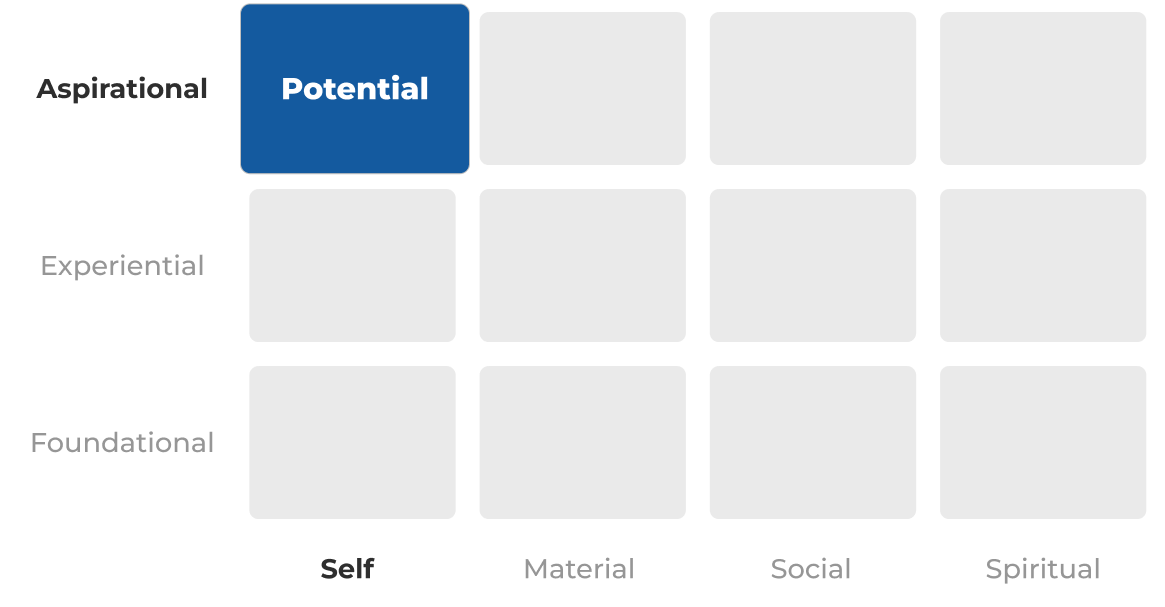

Promotion & Prevention needs for Potential were evenly split with this group.
Promotion-Oriented Potential
These individuals were driven by a desire to stretch their capabilities, achieve self-actualization, and embrace challenges that help them grow. They actively sought opportunities for learning and skill-building.
Prevention-Oriented Potential
Participants with prevention needs for potential aimed to avoid stagnation or removing barriers to growth. They focused on maintaining consistent progress and avoiding risks that could undermine their confidence or progress.

The Risks of Unmet Emotional Needs
- Emotional Exhaustion: Carrying unresolved insecurities or doubts leads to chronic stress, draining energy and resilience.
- Missed Opportunities: Fear of failure or self-doubt can prevent individuals from pursuing new challenges or meaningful growth.
- Relationship Strain: Unmet emotional needs often manifest in strained communication or isolation, impacting both personal and professional relationships.
- Burnout: Prolonged emotional imbalance can lead to physical and mental exhaustion, undermining long-term success and wellbeing.
By acknowledging and addressing these risks, individuals can create a foundation of emotional stability that empowers them to face challenges with confidence.
Emotional Needs Life Hacks for the New Year
Here are some simple yet impactful strategies from the AgileBrain framework to meet the three emotional needs identified by our participants in the New Year’s Check-In:
Immersion
Hack: Schedule deep-focus “power hours.”
- Dedicate one uninterrupted hour daily to an activity you love or find fulfilling.
- Use tools like noise-canceling headphones or the Pomodoro Technique.
Why it works:
Immersion reduces stress and enhances engagement with meaningful tasks.
Purpose
Hack: Write a personal mission statement.
- Define your core values and long-term impact goals
- Review and revise annually.
Why it works:
A clear purpose acts as a guidepost during uncertain times.
Potential
Hack: Apply the 1% Rule.
- Dedicate just 15 minutes daily to improving a specific skill or habit.
- Track small wins and review your progress monthly.
Why it works:
Small, consistent efforts compound into significant growth over time.
The Path Forward
Emotional wellbeing isn’t just a personal endeavor—it’s a collective responsibility. By recognizing the importance of fundamental emotional needs like Immersion, Purpose, and Potential, we can foster environments that empower individuals to thrive.
AgileBrain Exercises serve as both a mirror and a guide, helping participants reflect on their emotions, identify unmet needs, and take meaningful action. As we move forward into the year, let’s commit to prioritizing emotional clarity, embracing growth, and supporting one another in this shared journey.


